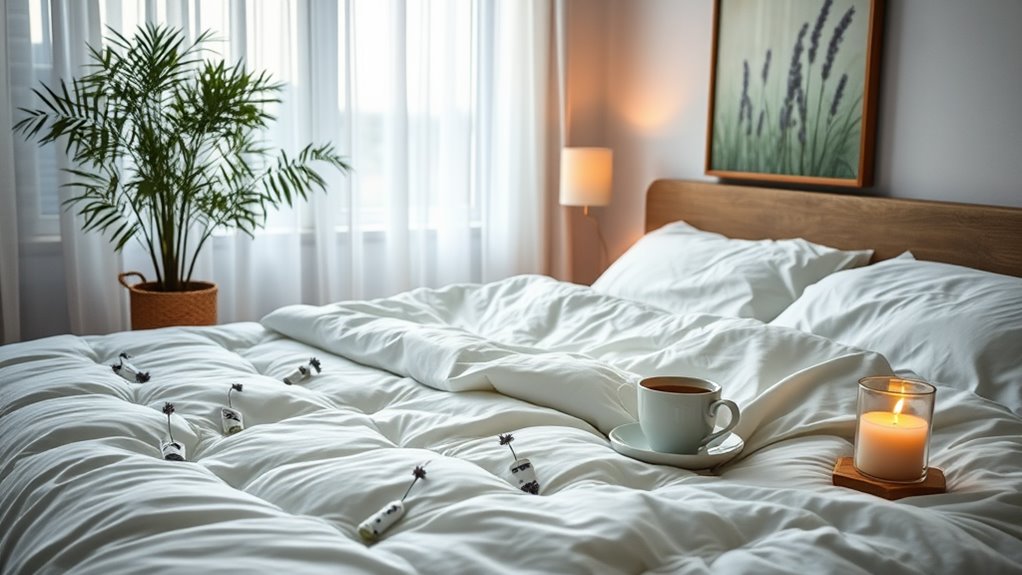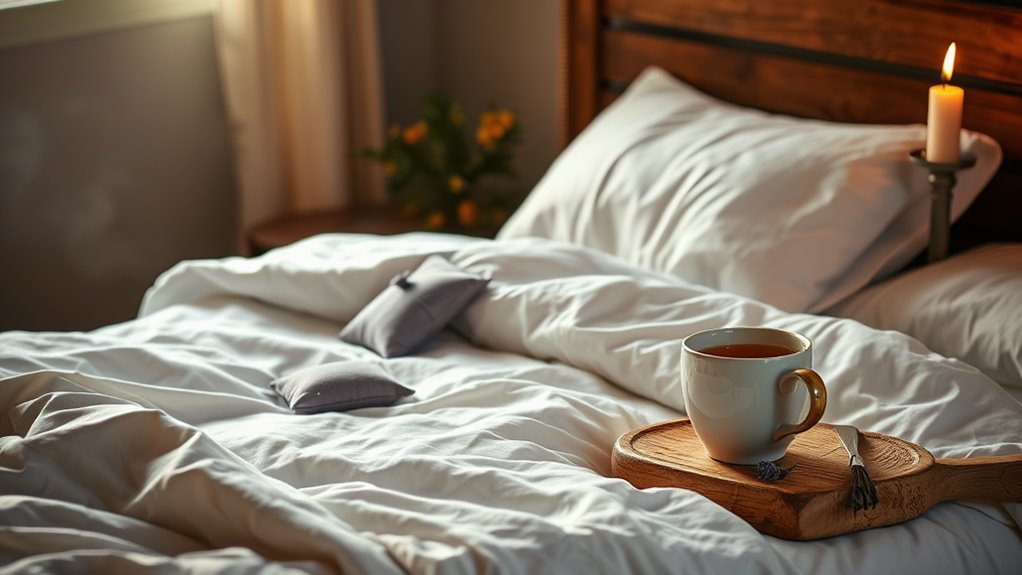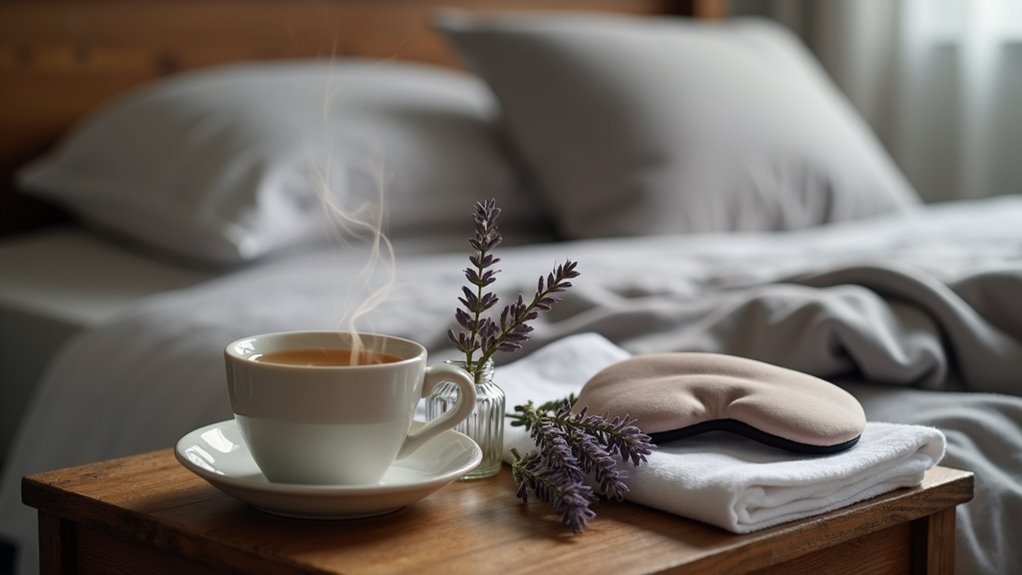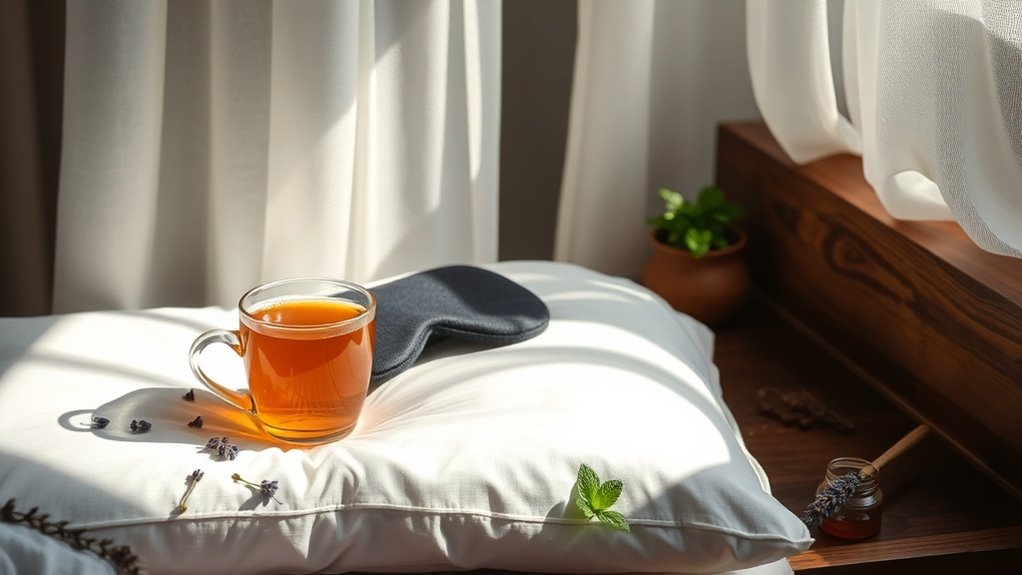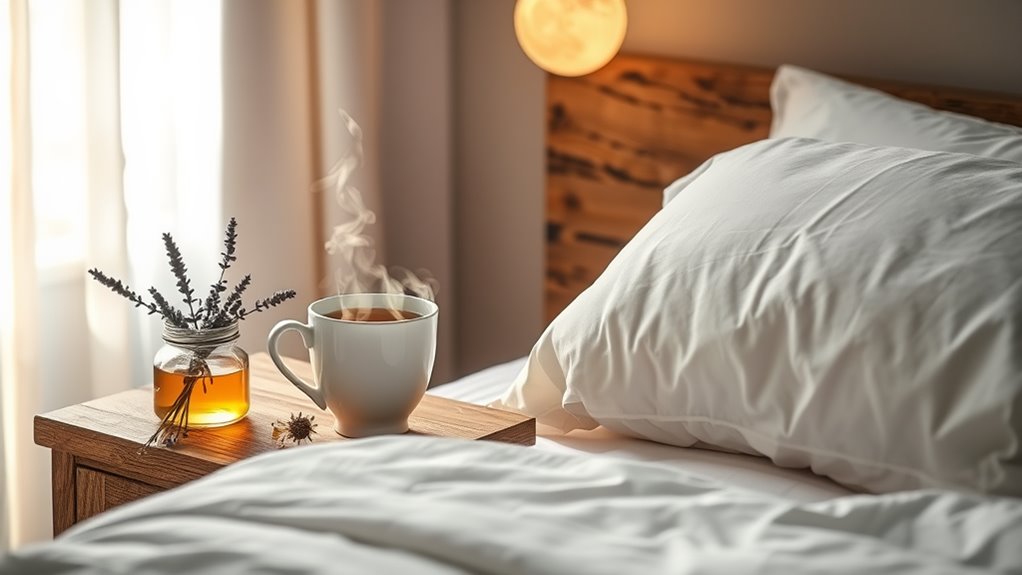Natural Sleep Remedies That Help You Wake Up Fresh
If you’ve struggled with sleep quality, you’re not alone. Studies show that over 50 million Americans battle sleep issues regularly, impacting their daily performance and long-term health. While prescription medications offer one solution, natural remedies provide effective alternatives without unwanted side effects. From ancient herbal wisdom to modern lifestyle adjustments, you’ll discover scientifically-backed methods that can transform your nights and help you greet each morning with renewed energy.
Common Sleep Disruptors and Their Natural Solutions
Although many factors can interfere with sleep quality, identifying common disruptors is the first step toward finding effective natural solutions.
Screen exposure, caffeine, irregular schedules, stress, and environmental factors like noise or temperature can greatly impact your sleep patterns.
You’ll find natural sleep remedies most effective when targeting these specific disruptors.
Try blue light filters or screen-free time before bed, swap caffeine for herbal tea after noon, maintain consistent sleep-wake cycles, practice relaxation techniques, and optimize your bedroom environment. Magnesium supplementation is another key factor that can significantly improve your sleep quality.
Creating a personalized strategy that addresses your unique sleep challenges will lead to more restful nights.
Essential Herbs and Supplements for Better Sleep
When seeking natural sleep solutions, several well-researched herbs and supplements have shown promising results for improving sleep quality.
You’ll find melatonin supplements effective for regulating your sleep-wake cycle, while valerian root can reduce the time it takes to fall asleep.
Magnesium helps relax muscles and calm nerves, supporting deeper sleep patterns.
Chamomile tea contains apigenin, an antioxidant that promotes drowsiness, while passionflower increases GABA levels in your brain, leading to improved sleep quality.
L-theanine, found in green tea, reduces stress and anxiety that often interfere with rest.
These natural options offer science-backed alternatives to conventional sleep medications. Understanding the importance of magnesium deficiency can further enhance your approach to achieving better sleep.
Lifestyle Changes That Transform Your Sleep Quality
Making sustainable lifestyle adjustments can considerably improve your sleep quality without relying on supplements or medications.
Maintain a consistent sleep schedule by going to bed and waking up at the same time daily.
Create an ideal sleep environment that’s dark, quiet, and cool (65-68°F).
Limit screen exposure 2 hours before bedtime due to blue light’s melatonin-suppressing effects.
Exercise regularly, but complete vigorous workouts at least 3 hours before bed.
Avoid caffeine after 2 PM and large meals within 3 hours of bedtime.
Practice stress-reducing activities like meditation or deep breathing exercises before sleep.
Creating the Perfect Sleep Environment
Since your bedroom environment directly impacts sleep quality, maximizing this space should be a top priority.
Keep your room temperature between 60-67°F (15-19°C), as studies show this range promotes ideal sleep. Install blackout curtains to block artificial light, which disrupts melatonin production. Use white noise machines to mask disruptive sounds and maintain a consistent audio environment.
Choose breathable bedding materials like cotton or bamboo, and verify your mattress and pillows properly support your body’s alignment.
Remove electronic devices and maintain humidity levels between 30-50% to prevent respiratory discomfort. Paint your walls in calming, neutral colors to promote relaxation. Additionally, ensuring that the room’s environment has ideal conditions for sleep can significantly enhance your ability to fall and stay asleep throughout the night.
Evening Rituals for Deep, Restorative Rest
Establishing consistent evening rituals signals your body that it’s time to wind down for sleep.
Start by dimming lights 90 minutes before bedtime to boost melatonin production.
Disconnect from electronic devices, as blue light suppresses natural sleep hormones.
Take a warm bath or shower to trigger your body’s natural cooling process.
Practice meditation, deep breathing, or gentle stretching to lower cortisol levels.
Sip caffeine-free herbal tea like chamomile or valerian root, which are known for their sedative properties that aid in achieving better sleep.
Journal briefly to clear mental clutter, or read a physical book.
Set your bedroom temperature between 60-67°F (15-19°C).
Follow this sequence nightly to reinforce your circadian rhythm.


